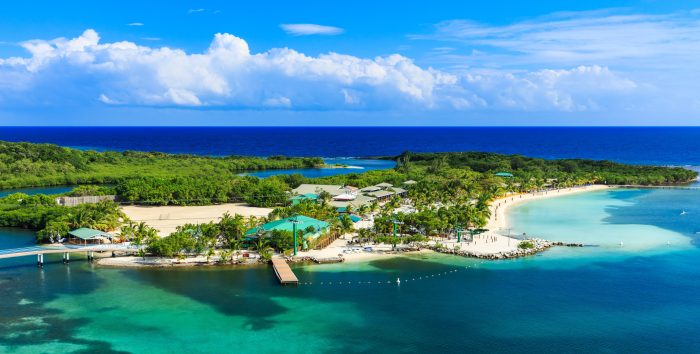
Project of a semi-autonomous "private city" of Próspera has been established on the Honduran island of Roatán.
Partly independent special economic zone called “Próspera” (“Prosperous”) is being created on the Honduran island of Roatán. Titus Gebel, a German businessman and promoter of the idea of free private cities, played a significant role in the preparation of the project. The zone will have its own legal system.
The islanders’ fundamental rights are secured by a treaty concluded under the “Agreement on Coexistence” that cannot be changed unilaterally by the zone operator, nor the majority, and not even by the Honduran government.
“This is probably the first time in history that there is a real social contract, not a fictional one,” Titus Gebel emphasized.
“Próspera” has gained some kind of partial autonomy from the Honduran government. The zone will have its own regulatory powers and an autonomous system of administration, which will ensure security and dispute resolution.
Companies operating in this zone will be given the opportunity to choose freely between multiple legal systems.
“Próspera describes itself as a platform for economic development that is partnered with the Honduran government to create the first development hub on the island of Roatán,” Gebel said.
The regulations and taxation within this semi-autonomous hub will be different from the system that is in force in the rest of the Honduras.
According to Gebel, this regulatory and tax system is one of the best in the world. It should therefore provide high-quality conditions for business activities.
“The framework instituted by the Próspera Platform enables businesses to grow profitably in a free market, and in a way that is sustainable for the environment and for local communities,” stated Gebel.
Gebel helped to create the legal and administrative framework since he was responsible for the project’s legal aspects for several years. He resigned after the whole project was approved by the Honduran government. However, the entrepreneur continues to be one of the investors in the project.
According to Gebel, the island of Roatán itself has a high-quality infrastructure that includes an international airport with direct flights to the USA. The Port of Roatán also has two cruise ship terminals.

Roatan Island, Honduras
“What we are observing here could be indeed the dawning of a new era. It is not coming with a big bang but slowly materializing as an alternative,” specified Gebel.
In his opinion, Próspera represents a new competitor in the “market of living together” – a competitor who understands that governance is a service to the people.
He also pointed to a parallel with cities such as Hong Kong and Singapore. However, Honduran Próspera zone is unique as it was the first one to create a completely new jurisdiction that will offer government services to all residents on a purely contractual basis.
These public services will be, to a large extent, outsourced by private companies.
Honduras already approved the law on the creation of the so-called ZEDE (Zone for Employment and Economic Development) in 2013. The law requires the establishment of a state commission that will approve the rules and regulations created in the Próspera zone.
There will also be a representative body in the semi-autonomous territory of the Próspera zone, which can adopt new legislation. However, it must not change the citizens’ rights, which are guaranteed by the “Agreement on Coexistence” and the “Charter of Próspera”.
Honduran laws also require a tax structure to be established in the special economic zone. Therefore, there will also be taxes in the Prosper zone, which will, however, be “moderate” as claimed by Gebel.
“Altogether, it is a mixed system between a private governance model and a more traditional public political system. You might call it a Prosperity Zone,” Gebel added.
Free Private Cities
He previously founded the organization and a follow-up project called „Free Private Cities“. The aim was to create an independent private city based on the principles of market economy and freedom. Such cities should not have political, democratically elected leadership.
The operator of the city that provides services on a purely market basis should be a private company. The private “owner of the city” should provide a basic legal framework applicable for companies and residents in the city.
Gebel has been striving to fulfil his Free Private Cities project for a long time. The main principle of a private city has always been its independence from the state and the absence of democratic political bodies.
He previously explained that he preferred the classical liberal minarchist model, in which the role of the state is performed by a private company, whose activities are bound by bilateral agreements with individual citizens. Unlike anarchism, minarchism recognizes the existence of a minimal state.
Interestingly, city states such as Singapore and Monaco (where Gebel is currently living) are supposed to be a model for Gebel’s autonomous private cities.
As Gebel put it, the residents of the city should also be the customers of the private company. For a regular, contractual annual fee, the company will provide them with basic services, such as a protection of life, freedoms, and private property.
The advantage of such a city will be legal certainty guarantees (the city operator cannot change the residents’ rights or its contractual obligations towards them), absolute security, and preservation of the inhabitants’ freedom.












